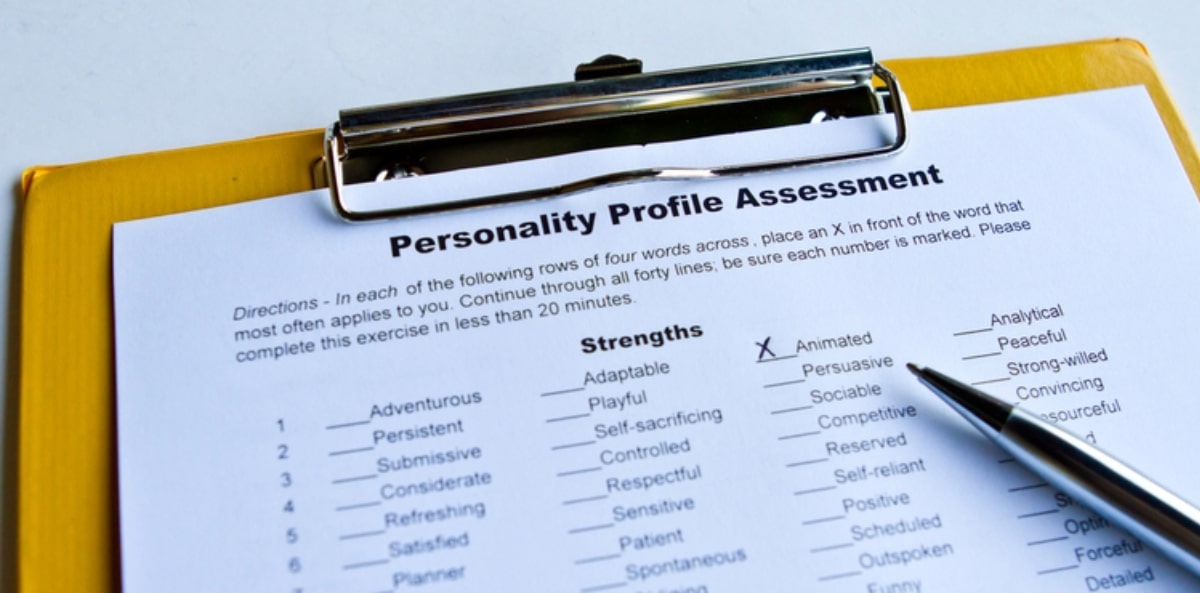Pre-employment screening tests: When are they legal?

Many small businesses use pre-employment screening tests in making their hiring decisions, to quickly and objectively narrow an applicant pool down to the most eligible candidates. These screenings have been gaining popularity in recent years thanks to online job listings, with some human resources personnel viewing them as a business necessity.
Even the smallest business can be flooded with applications. The use of pre-employment tests can help you find the best job applicants and reduce workplace discrimination and liability risks, while allowing the best job candidates to rise to the top.
Are these pre-employment assessments legal? The answer is, usually. The U.S. Equal Employment Opportunity Commission (EEOC), the body that enforces employment laws, provides an Employment Tests and Selection Procedures fact sheet to help business owners understand the legal issues surrounding these tests.
We’ll be using this guide to examine the legality of some common employment tests that fall under the jurisdiction of the EEOC and federal laws. Then we’ll discuss how you can avoid inadvertent hiring discrimination on your cognitive ability and employment tests—and how to financially protect your business with the right insurance.

What is a pre-employment test?
A pre-employment test can be any procedure your business uses to screen potential hires and employees under consideration for promotion. Some examples include:
- Cognitive skills tests (e.g., measuring memory, reading comprehension, math skills, etc.)
- Physical ability tests (e.g., checking the strength of a specific muscle group)
- Sample job tests (e.g., simulating a work situation)
- Medical tests (e.g., any test that measures physical or mental health)
- Personality tests (e.g., measuring the likelihood that a person would steal from an employer)
- Language proficiency tests (e.g., measures fluency in English)
- Performance appraisals (e.g., a supervisor’s assessment of an employee’s performance)
- Criminal background checks
- Credit checks
Because these tests can (and have) been used to discriminate against employees and potential employees, the EEOC enforces anti-discrimination laws to prevent this from happening. These laws are:
- Title VII of the Civil Rights Act of 1964 (Title VII)
- Title I of the Americans with Disabilities Act of 1990 (ADA)
- The Age Discrimination in Employment Act of 1967 (ADEA)
These federal laws make it illegal for employers to discriminate on the basis of race, color, religion, sex (including pregnancy status), national origin, disability, and age. Let’s take a look at how these laws apply to pre-employment screening tests.
What EEO laws say about pre-employment tests
In a nutshell, EEO laws prohibit the use of pre-employment screening tests as a way to discriminate against prospective and current employees. Below, we use EEOC guidelines to explore how each law draws a line between assessment and discrimination.
Title VII of the Civil Rights Act
Under Title VII, employment tests are legal as long as they are not “designed, intended or used to discriminate because of race, color, religion, sex, or national origin.” There are three major ways that a small business owner could violate this law:
Manipulating scoring. Title VII prohibits employers from changing, altering, or using different cutoff scores to impact the results of certain test takers.
Disparate treatment. This is when applicants or employees of a different race, color, religion, sex, or national origin are treated differently than other test takers. For example: an employer who only performs criminal background checks on black applicants.
Disparate impact. This is when a test disproportionately affects a certain group of applicants. For example, an employer may require all applicants to take a strength test, but the test results disqualify most women from the applicant pool.
Title I of the Americans with Disabilities Act
Title I of the ADA makes it illegal for employers to use employment screening tests to discriminate against qualified applicants based on their mental or physical disabilities. Employers may violate this law if they do one or more of the following:
- Use a test to screen out people with disabilities
- Use a test that does not accurately measure the skills it’s supposed to measure
- Fail to make reasonable accommodations for known disabilities during a test
- Require a medical test before making a job offer to an applicant
- Ask about a disability or require one new hire to undergo a medical test without extending the same procedures to all new hires in the same job position
- Ask or test a current employee with regards to a disability when the procedure is not necessary
Age Discrimination in Employment Act
The portion of this law that addresses employment tests makes it illegal for employers to use screening procedures to discriminate against individuals who are 40 years of age or older. You can violate this law in two major ways:
Disparate treatment. This is intentional age discrimination. For example, you can’t make employees who are older than 50 take a certain test if you don’t require all individuals to take the same test.
Discriminatory impact. This is when you use a procedure that disproportionately affects individuals aged 40 years and older, even if you require the same test for all parties.
How can small businesses avoid test discrimination?
According to EEOC guidelines, there are several ways for small businesses to stay on the right side of employment law. Here are just a few:
If you test one individual, test them all
Many hiring discrimination charges can be avoided simply by treating all prospective employees the same. Let’s say you run a trucking business and want to make sure all applicants are physically able to drive long distances. You must test (and document) employees, even if one applicant has plenty of experience and you’re pretty sure they are fit to drive.
If you can’t prove that a certain test is necessary for your job opening, don’t use it. Imagine that you run a manufacturing facility and you require all applicants to take a test that simulates a work situation. The test is a bit more rigorous than any situation an employee would likely encounter. If, as a result, this test prevents a certain group of people from performing well and getting the job, you could be in trouble with the EEOC.
Validate your tests
The Uniform Guidelines on Employee Selection Procedures (UGESP) help validate screening tests by providing specific guidelines to employers. Make sure your tests conform to these guidelines.
Update your testing policies regularly
As your business grows and changes, so might the duties and responsibilities of your staff. A test that fit a certain position five years ago may no longer apply to the job today.
Keep in mind that EEO laws apply to current employees, as well as prospective hires. This means that when considering employees for a promotion, each eligible individual should be evaluated exactly the same. Supervisors and managers should know how to work within EEO regulations when making their decisions.
Unfortunately, you may not be able to avoid all allegations of hiring and promotion discrimination. Even if the allegations turn out to be false and the charges are dropped, you’ll still be responsible for paying your legal defense costs.
That’s where employment practices liability insurance (EPLI) steps in. This coverage is designed to help small business owners pay for the costs associated with an employment practices lawsuit.

Have the right insurance coverage to protect your business
Employment practices liability insurance (EPLI) covers your business against employee lawsuits, in case you’re sued over a claim of violating employee rights. You can add this coverage to your general liability insurance or a business owner’s policy (BOP).
Also known as “EPL insurance,” this helps pay for your legal defense costs, such as attorney fees and settlement agreements, if one or more employees claim they were unfairly treated by your business. Even if you’ve done nothing wrong, defending against such lawsuits can be expensive.
If an employee files a complaint with the EEOC, or accuses you of violating the Family and Medical Leave Act (FMLA), you would likely face an employee lawsuit.
EPLI claims include accusations that your business violated an employee’s civil rights, on issues such as:
- Wrongful termination or demotion
- Sexual harassment
- Equal pay
- Discrimination based on age, gender, race, and other protected groups
- Breach of employment contract
- Invasion of privacy
- Mental or emotional distress
EPLI also covers slander or libel claims by your employees. While your general liability insurance covers slander and libel claims made by third parties, it does not cover such lawsuits by your employees.
Get quotes from trusted carriers with Insureon
Complete Insureon’s easy online application today to compare quotes for EPLI and other small insurance policies from top-rated U.S. carriers. Once you find the right policy for your business, you can begin coverage in less than 24 hours.
Mike Mosser, Content Specialist
Mike spent several years as a reporter and editor covering politics, crime, and the world financial markets. He’s worked for several newspapers, a financial newswire, and a monthly magazine. As a copywriter, Mike has produced SEO-based content, marketing, public relations, and advertising work for a variety of companies.









